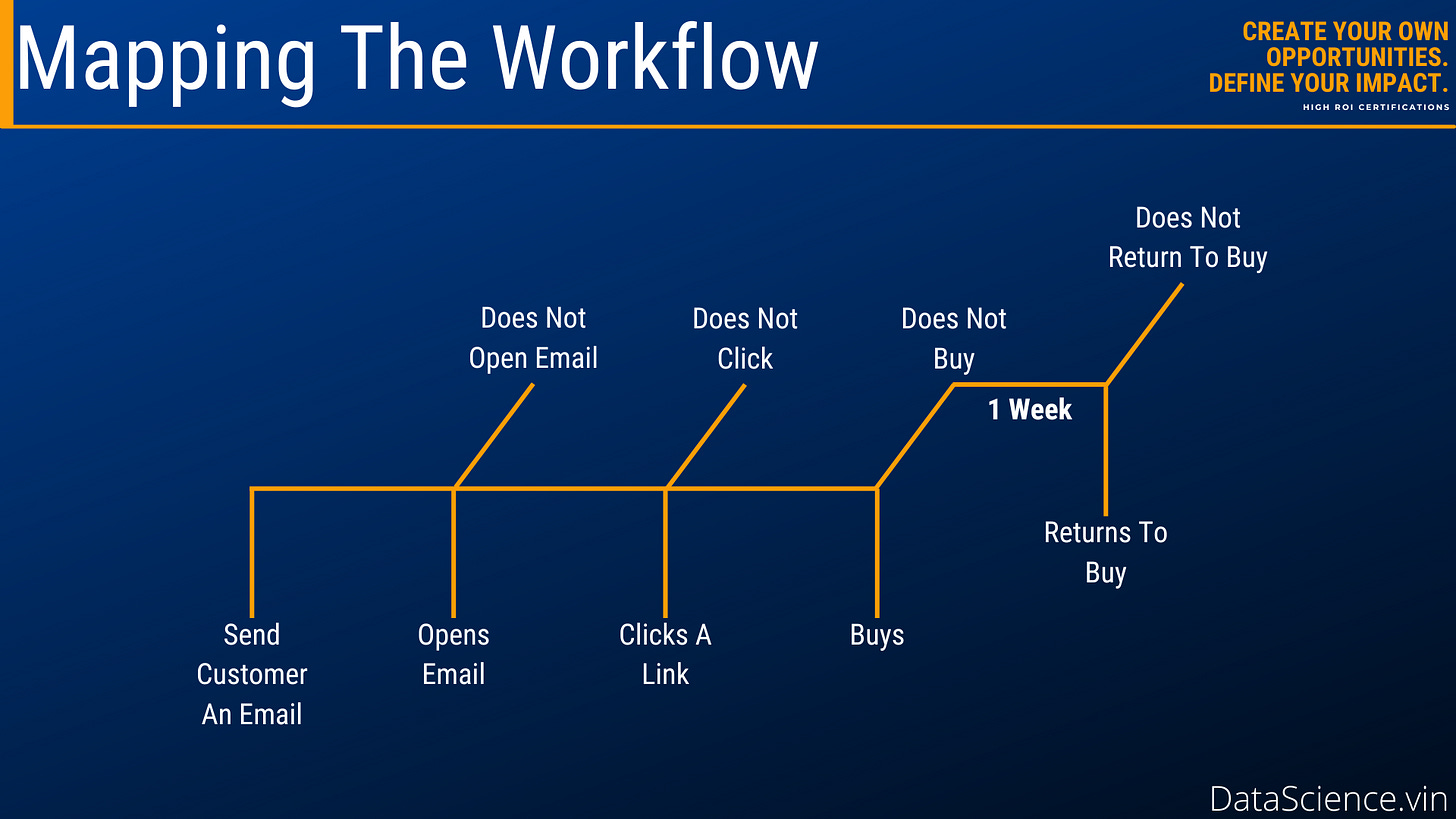How Problem Space Definitions Drive High-Value Data Science Initiatives: An Email Marketing Use Case
Today, you’ll be deluged by lousy marketing. Each poorly thought-out campaign is an opportunity for the data team to deliver value that most companies aren’t taking. Over the last decade, I have worked with several clients whose data teams worked on marketing campaigns with incomplete problem space definitions. Without a problem space definition, those initiatives had no connections to business outcomes.
In my AI Strategy and Product Management Certification courses, I explain how to connect business metrics to model metrics. In this article, I’ll provide an example based on email marketing campaigns, and you’ll never look at marketing spam the same way.
All V-Squared and HROI Certification marketing is “opt-in.” Just because you gave us your email doesn’t mean you’ve given us permission to send you marketing materials. Instead of sending you marketing emails by default and allowing you to unsubscribe (opt-out), we only send emails for the purpose you signed up for.
Problem Space Definitions Begin With Business Questions
Am I losing out on sales by not sending marketing emails? This is HROI Certification’s business question. As I hire new staff to help with sales and marketing, this question has come up repeatedly. Marketers assume that “opt-in” email marketing will cause my business to miss sales opportunities that “opt-out” strategies will convert.
The purpose of data science at early maturity businesses is to document domain knowledge so it can be validated or refuted. This is how problem space definitions begin. I ask the business’s experts for their opinions and what data they track. Everything I do begins with the assumption that experts are correct, so step 1 is to track outcomes.
Since they are correct, tracking outcomes allows them to measure the value experts add to the business. When marketing experts decide to start an email campaign, they want to measure the additional value it creates for the business. My initiative is aligned with my internal customers’ needs from the beginning. Buy-in will be easier, and I am more likely to deliver data customers care about.
Asking Experts About The Data
What email marketing campaign data do experts track? This is my next question and my initiative’s starting point. When I ask this question with clients, I get various responses, but most track a narrow set of email marketing performance metrics. I’ll remove the jargon and focus on workflows rather than KPI names.
HROI Certifications sends an email, and it is opened or not. Opened emails are seen, while unopened emails aren’t.
If the email is seen, the customer may or may not click on one of the links. Customers who click are taken to a landing page on our website.
They may or may not make an immediate purchase during that session.
Customers who don’t immediately make a purchase may or may not return within a week to make a purchase.
I can’t assume this is a complete problem space definition. This is the data most marketing experts gather. We should ask, is this the data they need, or is there more data I can provide to support the marketing experts?
Exploring The Data Space
Is this all the data that’s available? At most early-maturity businesses, the data experts believe they need is the only data gathered. Everything else is overlooked because they have an incomplete problem space definition. This is why flawed assumptions can go unchallenged for years.






